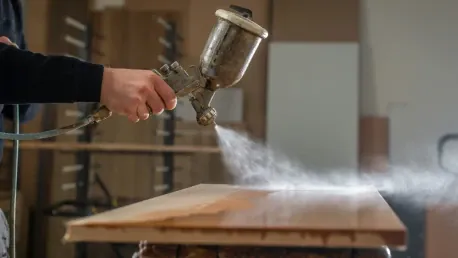The article titled “North Carolina Furniture Industry Unites to Overcome Hurricane Helene” provides a comprehensive overview of the furniture industry’s response to the devastation caused by Hurricane Helene, a Category 4 storm that affected several states from Florida to western Carolina. The detailed account outlines the immediate reactions, recovery efforts, and the sentiments of various industry leaders in the context of this natural disaster. The subject of analysis is the impact of Hurricane Helene on the North Carolina furniture industry, emphasizing the industry’s collective response to the extensive damage. This includes anecdotal reports from industry executives, damage assessments, and the actions taken to support affected communities.
Extent of Damage and Human Cost
Hurricane Helene has left a profound mark on the affected regions, with North Carolina bearing a significant brunt. The storm’s devastation resulted in over 130 deaths and more than 600 people still missing. Financial implications are staggering, with preliminary estimates by Moody’s Analytics pegging damage at $26 billion, while AccuWeather projects the economic toll could reach an astounding $160 billion. This makes Helene one of the top five most costly storms in U.S. history. The extensive destruction necessitated a quick and effective response from various sectors, particularly the furniture industry, which holds a substantial economic presence in North Carolina. Amid power outages, disrupted transportation, and widespread infrastructure damage, industry leaders quickly mobilized to address both the immediate and long-term needs of their operations and communities.
Challenges Faced by the Furniture Industry
North Carolina’s status as a crucial hub for furniture manufacturing meant that many local businesses faced substantial challenges in the wake of Hurricane Helene. Power outages caused significant disruptions, forcing companies like Craftmaster Furniture to resort to manual operations temporarily. The loss of internet services further complicated business continuity, impacting everything from communication to logistical planning. Transportation issues also played a major role in hampering normal business activities. Flooded roads and closed bridges disrupted supply chains, delaying the delivery of both raw materials and finished products. This created a ripple effect across the industry, affecting production schedules and financial forecasts.
Community and Industry Solidarity
Despite these challenges, the North Carolina furniture industry showcased remarkable solidarity. Several companies undertook immediate relief efforts to help affected communities. Employee welfare was a primary focus, with businesses extending support to their staff and families. Craftmaster Furniture, for instance, contributed donations and logistical support to aid affected communities. The industry’s unity extended beyond internal efforts as well. Companies engaged in coordinated relief activities, such as collecting and delivering essential supplies and offering promotional sales to raise funds for disaster relief. This concerted approach highlighted the deep-seated values of camaraderie and mutual support that pervade the industry.
Leadership and Resilience
Industry leaders played a pivotal role in navigating the challenges posed by Hurricane Helene. Alex Reeves, president of Craftmaster Furniture, highlighted the company’s efforts to restore operations and support their community. With persistent disruptions from power and internet outages, Reeves emphasized the importance of manual operations and community engagement in their recovery strategy. Similarly, Zack Taylor, president of Wesley Hall, discussed the minimal disruptions in Hickory but acknowledged the significant damage just miles away. He commended the industry’s customers and suppliers for their support. Taylor noted that companies like Saybrook Home in Connecticut were donating a portion of proceeds to aid North Carolina’s recovery.
Blake Millinor, president of Valdese Weavers, emphasized the need for community support amid substantial operational disruptions, including power outages at one of their four facilities. The industry’s collective resolve and gratitude for the assistance received from various stakeholders underscored the importance of community solidarity.
Immediate Actions and Long-Term Recovery
The immediate response from the North Carolina furniture industry was a blend of emergency relief and strategic long-term planning. Temple Furniture, under the leadership of Adrian Parker, transformed into a drop-off point for essential supplies, aiding both employees and the broader community. This grassroots effort was mirrored across the industry, with companies pooling resources to ensure a swift humanitarian response. Sherrill Furniture’s Tom Zaliagiris noted that while their facilities and employees were largely unscathed, the company was committed to running special promotions to fundraise for hurricane relief. Vanguard Furniture’s president, Andy Bray, provided a sobering perspective on the widespread damage and emphasized a strong focus on long-term recovery efforts for the north and west regions of their location.
Resilience and Adaptation Trends
The article “North Carolina Furniture Industry Unites to Overcome Hurricane Helene” provides a detailed look at the furniture sector’s response to the destruction wrought by Hurricane Helene, a powerful Category 4 storm that impacted several states, spanning from Florida to western Carolina. The piece meticulously describes the immediate reactions, recovery initiatives, and the feelings of various industry leaders facing this natural catastrophe. The analysis zeroes in on the hurricane’s effect on North Carolina’s furniture industry, highlighting the collective efforts to address the widespread damage. This includes personal stories from industry executives, detailed damage assessments, and the various actions taken to help communities that were hard-hit by the storm. The narrative serves to underscore the resilience and solidarity within the North Carolina furniture industry, illustrating how businesses joined forces to support recovery and rebuild stronger than before, demonstrating a unified front in the face of adversity.









